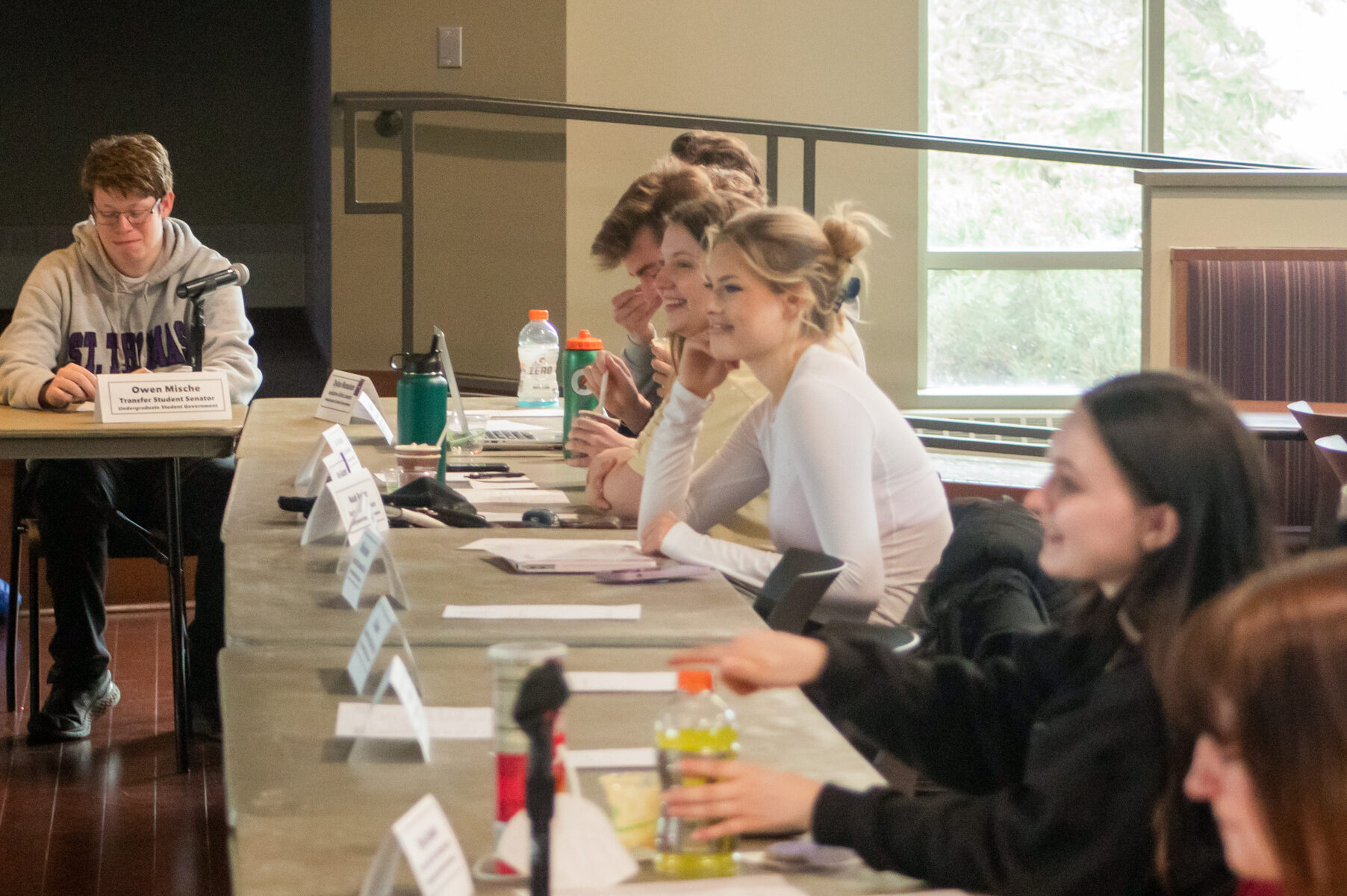A lot has changed at St. Thomas since the Undergraduate Student Council was formed as the All College Council in 1938. From going co-ed to Division I athletics, the voice of the student body has grown immensely.
In the 1970’s you would find Rick Kunkel, who is now an associate professor of ethics and business law at the university, at the open meetings, where he said the topic of conversation was slightly different from today’s.
“At the time I was involved, there were maybe five officers, a president and one of the big jobs was the social chair,” Kunkel said. “A lot of the activity of the social chair was to organize these various big dance parties with many many kegs of beer.”
Now, USG has 44 positions: eight executive board members, 26 elected positions and 10 positions who represent various departments on campus. These positions take on a variety of initiatives such as supporting DI athletics and partnering with Student Diversity & Inclusion Services to form a coalition.
“The Initiatives per semester for USG stem from our 5 pillars. The 5 pillars are Academics, Accountability, Diversity/Equity/Inclusion/Social Justice, Well-being, and Sustainability,” USG President Adam Revoir said.
A big reason why USG has grown and evolved to handle different initiatives is because the student voices have grown to become more diverse as well.
“When I first got involved in student government, there were no women in the student government,” Kunkel said.
Despite the changes in diversity and in initiatives, the purpose of student government has remained consistent.
“The All-College Council provides the mechanism whereby the academic and social life of every student can be enriched by wholesome and wholehearted as well as soul-strengthening participation in the activities which it offers,” The St. Thomas Aquin said on May 6, 1938.
Now, this statement embodies a much more diverse student body today; one with different values and interests as there are over 130 clubs and organizations for students to participate in, which are approved and funded by USG using student activity fees.
“If you’re interested at all, this is ultimately your student activity fee and your presentation to faculty members and the larger university. When you think of student government, I hope people seem like they belong there even if they don’t have a title,” Residential Senator Katie McGinnis said.
Ben Hogan can be reached at hoga1306@stthomas.edu.



